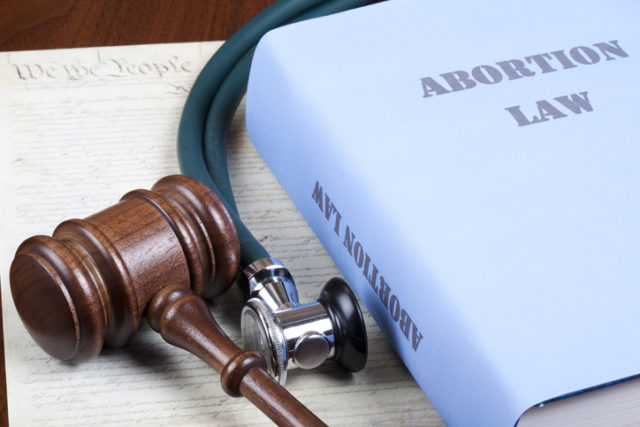
In 2000, the Food and Drug Administration approved mifepristone and misoprostol, two pills that are taken together to terminate a pregnancy. The agency ruled that these drugs, often referred to as “abortion pills” were safe to use through ten weeks gestation. By 2021, more than half of U.S. abortions were performed using these drugs.
But after the Supreme Court overturned Roe v. Wade last summer, some states banned pharmacies from dispensing the abortion drugs approved by the FDA. Access to abortion pills is currently restricted in 15 states, and a federal judge in Texas last week ordered a preliminary injunction to suspend mifepristone.
Below is a timeline of some key events pertaining to abortion pill access that have taken place this year.
January 3: The FDA published a decision saying that prescribed abortion pills can now be dispensed at retail pharmacies.
Shortly after this decision, CVS, Walgreens and Rite Aid announced they were planning to dispense mifepristone at their pharmacies. But these chains said they were being careful about which pharmacies were going to dispense the pill, as state laws differ. Some states ban pharmacies from dispensing mifepristone and only allow a physician to terminate a pregnancy — such as Florida, Pennsylvania and Arizona.
January 13: Attorneys general from 22 different states sent a letter to the FDA urging the agency to reverse its January 3 decision. The officials wrote that their states “will not yield to the Administration’s radical pro-abortion policies.”
January 17: New York City Mayor Eric Adams announced that the city now offers free abortion pills at neighborhood health clinics.
January 22: President Joe Biden issued a memorandum to protect Americans’ access to medication abortion. The memorandum directed the Department of Health and Human Services to “consider new guidance.”
January 25: GenBioPro, a pharmaceutical company that makes abortion pills, filed a lawsuit against West Virginia over the state’s ban on mifepristone and misoprostol. If the court rules in GenBioPro, a precedent could be set for ending similar laws in other states.
On the same day, an obstetrician-gynecologist in North Carolina sued state officials. Their complaint said that state lawmakers can’t enforce restrictions on medication abortion beyond what federal regulators designate.
February 1: Attorneys general from 20 different states sent a letter to Walgreens threatening legal action if the pharmacy chain begins dispensing abortion pills. The letter was signed by attorneys general from several states where medication abortion remains legal, such as Alaska, Iowa and Montana.
Republican attorneys general sent similar letters to other pharmacy chains as well, such as CVS, Rite Aid, Walmart, Costco, Kroger and Albertsons.
February 23: Attorneys general from 12 different states filed a lawsuit against the FDA and HHS to expand access to mifepristone. They argued that the FDA is imposing “burdensome restrictions” on a drug “that has been on the market for more than two decades.”
March 3: Wagreens said it will not dispense abortion pills in several states where they remain legal. This move stemmed from an abundance of caution amid changing laws, as well as pressure from attorneys general across the country.
March 8: California Governor Gavin Newsom withdrew a $54 million contract with Walgreens worth as a response to the pharmacy chain’s announcement that it would not dispense abortion pills.
March 9: New York Governor Kathy Hochul and Attorney General Letitia James sent a letter to Walgreens, CVS and Rite Aid asking them to promise to make medication abortion available in their New York pharmacy locations.
March 17: Wyoming Governor Mark Gordon signed a bill that forbids the sale of abortion pills across the state.
April 5: Washington Governor Jay Inslee announced that the state had purchased a three-year supply of mifepristone.
April 7: A federal judge in Texas ruled to suspend the FDA’s decadeslong approval of mifepristone. U.S. District Court Judge Matthew Kacsmaryk ruled partly in favor of four anti-abortion organizations and four physicians who filed a lawsuit in November against the FDA over its approval of mifepristone.
The decision marks the first time a U.S. court has ruled for a drug approval to be rescinded despite the FDA and the manufacturer of the drug opposing its removall. The ruling could limit access to mifepristone across the country.
The ruling will not take effect until April 14. This gives higher courts time to consider appeals filed April 7 by the Biden administration, the FDA and Danco Laboratories (a manufacturer of mifepristone).
On the same day as Kacsmaryk’s ruling, a federal judge in Washington state ordered U.S. authorities not to make any changes that would restrict access to abortion pills .
April 10: The Justice Department filed an appeal seeking to block the Texas ruling.
On the same day, California announced that it had secured about 2 million pills of misoprostol, and Massachusetts announced that it had stockpiled 15,000 doses of mifepristone.
April 11: Democratic and Republican lawmakers — including Senator Ron Wyden (D-Oregon) and Representatives Alexandria Ocasio-Cortez (D-New York) and Nancy Mace (R-South Carolina) — called on the FDA to ignore Kacsmaryk’s decision.
The final outcome for abortion pill access in the U.S. is still unclear among confliction federal rulings — the issue will likely end up in the Supreme Court.
Photo: Fokusiert, Getty Images







